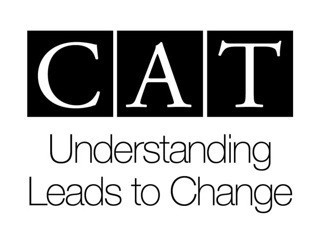Psychological Therapies Offered
Our team, under John's supervision, provides a range of evidence based therapies for most psychological difficulties. Although final decisions about which therapy would suit your own needs is made collaboratively at your assessment, we offer the following therapies:
Cognitive Analytic Therapy
CAT is a structured time-limited therapy that is often offered in blocks of eight sessions (i.e. 8, 16 or 24). It is a collaborative therapy and it works by looking at the ways you think, feel and act. The therapy is tailored to your individual needs and to your own manageable goals for change. CAT is very much focused on enabling change in one’s life and it does this by addressing the following points:
Changing how you view yourself
Finding out exactly what your problems and difficulties are; how they started; how they affect your everyday life, such as your relationships, your working life and your choices of how to get the best out of your life.
Thinking about the importance of relationships in your psychological life. This includes the relationship you have with yourself, others and the World.
There is more information about CAT at: http://www.acat.me.uk

Eye Movement Desensitization and Reprocessing (EMDR)
EMDR (Eye movement desensitization and reprocessing) has been developed to work with psychological trauma, but it has a growing evidence base and it is now being used to successfully treat individuals with difficulties, such as depression, OCD, phobias, addiction and eating disorders.
How does EMDR treatment help?
EMDR focuses on the specific traumatic memories and the beliefs related to these traumas. By using eye movements, it “unlocks” the negative memories and emotions and it helps the brain process the experience so that they no longer trouble you.
What happens in EMDR Therapy?
EMDR can feel a little different at the start, but this is entirely normal. This treatment asks you to bring the very images, memories, etc. that are troubling you. This typically would be an unpleasant image, memory or negative belief related to your traumatic event or situation. Once these images/ memories have been evoked, you would be asked to move your eyes side-to-side for several seconds. Afterwards, you will have a brief discussion about what was brought up during the exercise. Whatever came up can then be used for another exposure exercise. This cycle continues until distress has reduced.
EMDR with Fox Psychological Services
John, Georgia and Lexi are trained in EMDR and we have used it for a variety of traumas, such as survivors of burn accidents and road traffic accidents. We have seen how it can lead to significant reductions in flashbacks, nightmares and other trauma symptoms. With Fox Psychological Services, we would undertake an assessment of what has led you to come to therapy and to consider whether EMDR is the right treatment for you. A part of this decision process is to consider the evidence for treatment and EMDR is now a recommended therapy in the NICE guidelines for trauma and PTSD. Where EMDR works, it has an impact quite quickly and some of the EMDR protocols appear to have a significant effect on individuals who have previously appeared ‘stuck’ and treatment has not been successful in the past. EMDR is only one treatment out of a number that we can offer at Fox Psychological Services, so if it doesn’t sound right for you, please remember there are other therapy treatments we offer that may be more suitable for you. We can discuss this within your free 30-minute telephone conversation and at your assessment appointment.
Emotion Focused Therapy
What is Emotion Focused Therapy (EFT)
Emotion-focused Therapy (EFT) is a research based psychological therapy that helps people accept, express, regulate, make sense of and transform emotion. Prof. Greenberg and his colleagues in Toronto, Canada have undertaken a programme of research that has developed this therapy and it is now used in the treatment of anxiety, depression, eating disorders and many other mental health difficulties.
EFT works on the well-established research findings that show how emotions tell us what is important to us in a given context and how they act as a guide to what we need or want. Often in psychological difficulties, emotions are either shut down or overwhelming and EFT focuses on helping people become aware of and express their emotions. This involves learning how to tolerate and regulate our feelings, reflect on them to make sense of them and transform them. Importantly learning about emotions is not enough; instead, what is needed is to experience those emotions as they arise in the safety of the therapy session, where they can discover for themselves the value of greater awareness and more flexible management of emotions. Thus, people cannot leave psychological distress until they have arrived at both understanding and feeling the depth of these emotions.
Emotion Focused Therapy at Fox Psychological Services
John is trained in EFT with Prof. Greenberg in Canada and with his use of true empathy and a number of experiential methods, you can learn how to make healthy contact with your feelings, memories, thoughts, and physical sensations that may have been avoided or suppressed for a long time. By accessing more adaptive emotions such as grief and compassion, you will be able to transform maladaptive emotions such as fear, abandonment and low mood.

